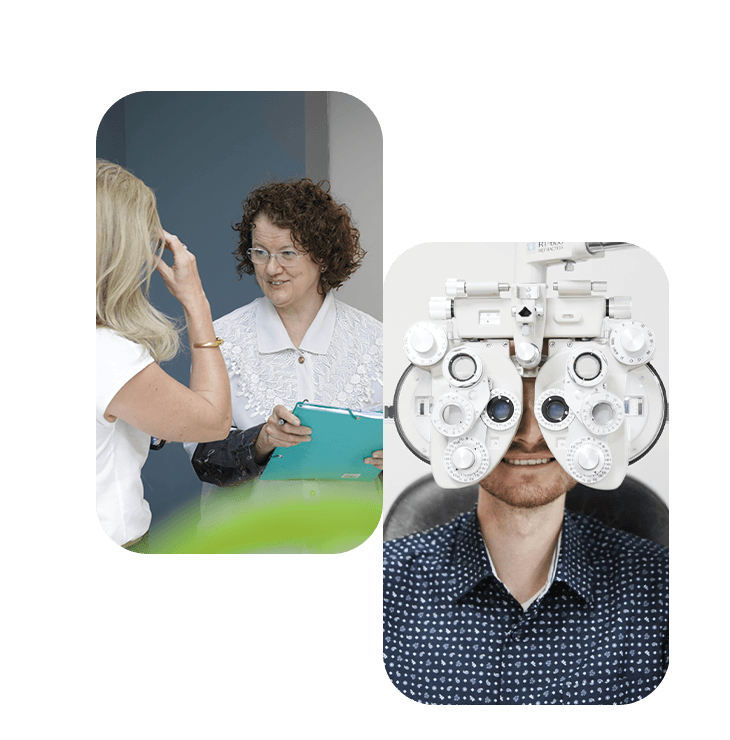Eye Care Designed for You
We provide the highest level of eye care in the safest possible environment for your family.
Make an Appointment
Online Schedule

Glaucoma Treatment in Dubai
Learn more about glaucoma & trusted glaucoma treatments in Dubai
Glaucoma is a serious eye disease which can lead to vision loss and blindness if left untreated. Primary open-angle glaucoma is the most common form of glaucoma.
Glaucoma is the second most common cause of legal blindness in the U.S.A. and the leading cause of blindness for African-Americans.
About 2 million Americans have glaucoma but only half of them are aware of it.
Glaucoma is a chronic (ongoing) condition that requires lifelong monitoring and treatment. It is important for people with glaucoma to work with their ophthalmologists or eye doctors to find a treatment plan that is right for them.





Glaucoma FAQ's
What is Glaucoma?
In glaucoma, the internal ocular fluid (different from tears) that normally flows through the front section of the eye does not drain properly. This causes a buildup of pressure in the eye that can damage the optic nerve and lead to vision loss.
Your glaucoma specialist in Dubai will use a series of painless tests and exams to check you for glaucoma. Other tests may be done if your doctor suspects you may have glaucoma-related damage.
Vision loss is usually preventable if glaucoma is detected early. There is no “cure” for glaucoma, but early detection and ongoing treatment can control the disease and usually preserve vision, or postpone the deterioration.
Treatments for glaucoma include medication and surgery. The best treatment for each patient is determined by a number of factors, including the type and severity of glaucoma, and the person’s medical history and lifestyle.
- Open Angle Glaucoma usually has no symptoms until vision loss has occurred.
- Approximately 80,000 Americans are legally blind from glaucoma. The incidence is higher in other countries. Many more have visual impairments.
- Seniors, African-Americans, and those with a family history of glaucoma are at higher risk for the primary disease and should have screening eye exams more often.
- Medications for glaucoma — even eye drops — can affect the whole body and may interact with other medications. It is very important for all your doctors to be aware of any medication you take. Secondary glaucoma may result as a side effect from systemic diseases and from certain systemic medications.
What are the Symptoms of Glaucoma?
Specialists report that most people who have glaucoma do not notice any symptoms until they begin to lose some vision.
As optic nerve fibers are damaged by glaucoma, small blind spots may begin to develop, usually in the side – or peripheral – vision. The top photo on the next page shows how a scene would be viewed by a person with normal vision. The bottom image shows the same scene as viewed by a person with glaucoma. Many people do not notice the blind spots until significant optic nerve damage has already occurred. If the entire nerve is destroyed, blindness results.
Another type of glaucoma, acute angle-closure glaucoma, does produce noticeable symptoms. In angle-closure glaucoma, there is a rapid buildup of pressure in the eye (pressure, known as IOP), which may cause any of the following:
- blurred vision
- severe eye pain
- headache
- haloes (which may appear as rainbows) around lights
- nausea and vomiting
Angle-closure glaucoma is a rare but serious form of glaucoma. If you have any of these symptoms, call your ophthalmologist immediately. Unless treated quickly, blindness can result.
Surgery For Glaucoma:
For some people, surgery might be the best treatment for glaucoma. Your ophthalmologist may suggest surgery as your first glaucoma treatment in Dubai or after trying medication to lower your IOP.
There are several different types of surgery for glaucoma. The kind of surgery you and your ophthalmologist should choose will depend on many factors, including the type and severity of your glaucoma, and other eye problems or health conditions.
Glaucoma surgery may be performed using a laser (a concentrated beam of light) or conventional surgical instruments.


